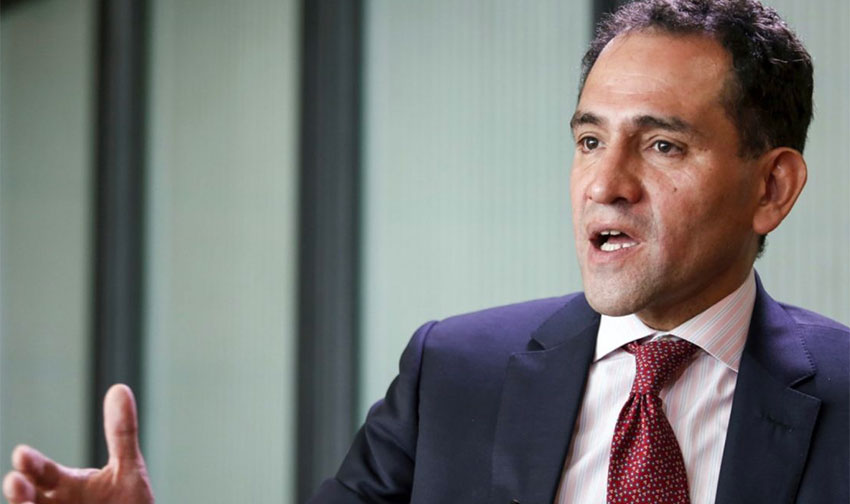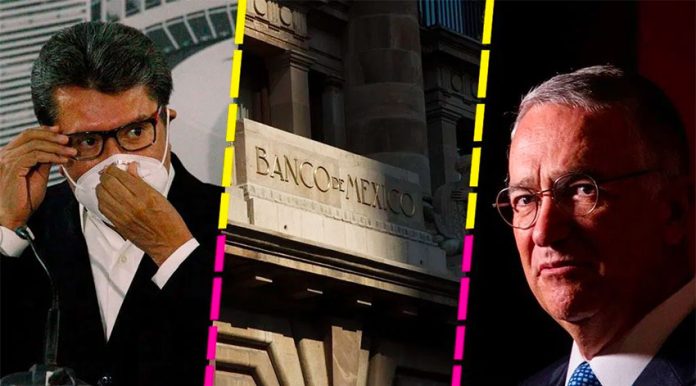The lower house of Congress has postponed debate and a vote on controversial legislation that would force the central bank to buy up all foreign cash that commercial banks can’t trade or sell abroad.
The Senate passed the bill last Wednesday and lower house lawmakers were expected to debate the bill and put it to a vote on Tuesday, the final sitting day of the year.
A vote is now expected during the first sitting period of 2021 in February. The decision to postpone the vote came after the bill attracted heavy criticism, even from the Bank of México itself.
The ruling Morena party says the objective of the legislation is to ensure that migrants can send remittances home in cash and their family members can exchange US dollars at a fair exchange rate at banks. It also says it would help tourism sector workers who often receive tips in dollars.
But critics say that it could force the Bank of México to buy cash obtained by drug cartels and other criminal organizations via illegal means. That could have an adverse effect on the central bank’s relations with its counterparts abroad, and foreign countries could impose restrictions on the entire Mexican banking sector.
There is also concern that the legislation violates the bank’s autonomy.
Ricardo Monreal, the leader of Morena in the Senate and the main proponent of the bill, announced the establishment of a working group to discuss the legislation in the first weeks of 2021 prior to a February vote. He said that representatives from both houses of Congress, the Finance Ministry and the Bank of México will participate in the group.
Monreal said Sunday that such a group should be formed to look at ways in which the bill can be improved.
The senator has rejected any suggestion that the law undermines the central bank’s autonomy.
Morena’s leader in the lower house, Ignacio Mier, said on Twitter Tuesday afternoon that he had proposed the creation of a working group with the participation of all sectors that are affected by the legislation: “the Bank of México, financial institutions and 30 million migrants.”
Some dialogue between lawmakers and stakeholders has already taken place, and the latter’s opinions of the bill have been overwhelmingly negative.

Bank of México Governor Alejandro Díaz de León told the Chamber of Deputies’ finance committee that if the legislation is approved, the whole cash management “ecosystem” would be compromised for the benefit of one financial institution that is having trouble offloading foreign cash.
He didn’t name the institution but media reports indicated that he was referring to Banco Azteca, owned by billionaire businessman Ricardo Salinas, who is regarded as a close ally of President López Obrador.
Members of the finance committee discussed the bill for more than three hours on Monday with representatives of the Association of Mexican Banks (ABM) and foreign banks.
The bankers warned there was a possibility that the central bank might be forced to buy ill-gotten cash and said that it could come under audit by foreign banks as a result. They also said the United States Department of Justice could seek to intervene if the Bank of México was seen to be violating international treaties by buying up foreign cash obtained illicitly.
“This could lead to the freezing of [central bank] reserves. … There is no precedent in the world of a central bank having that type of risk,” said Héctor Grisi, executive chairman of Santander.
ABM president Carlos Rojo proposed entering into bilateral discussions with the United States to seek a solution to the excess foreign cash problem, which according to the Bank of México is not a significant one.
While there are anti-money laundering laws here and elsewhere in the world, they are not foolproof, he said.
Emilio Romano, head of the Bank of America in Mexico, said the bill’s proposal has already caused uncertainty in global markets. He said the legislation is not an ideal solution to the excess cash problem because it places a burden on an institution – the central bank – that is essential to financial stability.
Romano suggested a better alternative could be found via dialogue between the Bank of México, the Finance Ministry, the United States Department of the Treasury and the U.S. Federal Reserve.
The rating agency Moody’s said in a report that if the bill passes the lower house of Congress and becomes law, there will be a negative impact on Mexico’s sovereign rating and economic stability will be undermined.
Finance Minister Arturo Herrera weighed in on Tuesday, saying that postponing congressional debate on the bill to allow external dialogue was the right decision.
He said it was clear that the implications of the legislation had not been analyzed.
“As has just been made public, deputies postponed debate of the Bank of México law. We think they have taken the appropriate step to provide space for a more technical and profound discussion,” Herrera wrote on Twitter.
“One fact for discussion: about 99.3% of all remittances already go through the banking system [via electronic transfers]. This is the route that we must keep operating so that they continue to arrive quickly, safely and at a low cost.”
That remark, as the Bank of México has been saying all along, recognizes that problems associated with exchanging cash remittances from migrants is not as significant an issue as Morena has been making it out to be.
Source: Reforma (sp), El Universal (sp)
